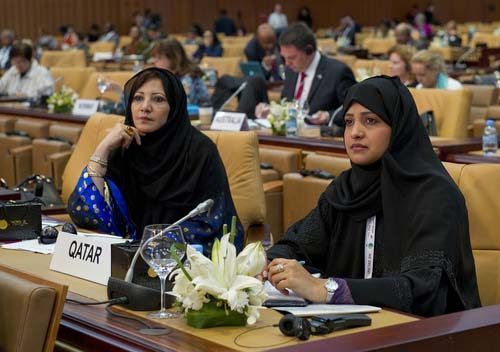
Though women in Qatar have made huge strides in the workplace, they still contend with several obstacles on the job.
According to Wamda, a Jordan-based organization for entrepreneurs that recently held a workshop in Qatar, those challenges vary for expats and Qataris. For the former category, they include:
- Unfair sponsorship laws. Oftentimes, married women are expected to be under their husband’s sponsorship, even if they are working. This means she could be denied equal pay as well as benefits like tuition, housing and other allowances.
- Not being taken seriously. Whether married or single, women said they found negotiating salaries to be difficult because what they make was perceived to be a side income. The underlying assumption appears to be that they are being taken care of by their families.
- Being stereotyped as “moody.” Many women said it works against them to be assertive or stand up for themselves at work, because they are judged negatively for it. This culture pervades both local and multinational companies in Qatar, they said.
- Family not on same page. Some females who chose to start businesses said it was hard getting their spouses to understand and support the time and financial commitments that their start-ups demanded.
For Qatari women, work/life balance was the biggest issue, with challenges including:
- Lacking flexibility. Many of the women interviewed said they wanted more opportunities for part-time work and more control over their schedules.
- Not having a children’s space. Most companies in Qatar do not offer onsite daycare services, which has long been a sticking point for career women here, who say productivity would increase with the peace of mind that comes with having their child nearby.
- Social obligations. Some women found balancing work commitments with family, friends and home life to be impossible.
- Lack of financial independence. Like the expats who discussed challenges, local women also stressed that contributing to their own finances was important to them, regardless of their families’ wealth.
Have you faced challenges as a woman in the workplace here? Thoughts?
Credit: Photo by UNCTAD







